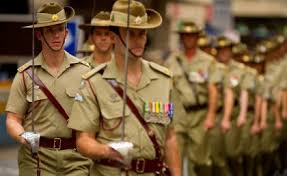University Of California Study Finds Gays Do Not Undermine Australian Military
SANTA BARBARA. A new University of California study of gays and lesbians in the Australian military has found that after Australia’s 1992 decision to allow homosexuals to serve openly in its armed forces, military performance did not decline. Furthermore, evidence suggests that lifting the ban has contributed to improvements in the working environment.
Prior to the lifting of the ban, military leaders argued that allowing homosexuals to serve openly would jeopardize recruitment, troop cohesion, and combat effectiveness while also spreading AIDS and encouraging predatory behavior.
The study was written by Aaron Belkin and Jason McNichol. Belkin is Director of the Center for the Study of Sexual Minorities in the Military at the University of California, Santa Barbara. McNichol is Doctoral Candidate in Sociology at University of California, Berkeley.
A copy of the study was sent by Federal Express and received in the Pentagon in the Office of the Assistant Secretary of Defense for Public Affairs (703) 695-0192.
This peer-reviewed study reflects an exhaustive inventory of research including in-depth interviews with 18 soldiers, academics, and Ministry representatives as well as reviews of all published material on the topic. Its title is “The Effects of Including Gay and Lesbian Soldiers in the Australian Defense Forces: Appraising the Evidence”. Key findings are as follows:
* Senior officials, commanders, and military scholars within the Australian Defense Forces consistently appraise the lifting of the ban as a successful policy change that has contributed to greater equity and effective working relationships within the ranks. Gay soldiers and commanders have successfully served in recent active deployments in East Timor.
* Senior officials, commanders and scholars report that there has been no overall pattern of disruption to the military. However, some individual units have reported disruptions that were resolved successfully through normal management procedures.
* Recruitment and retention rates have not suffered as a result of the policy change. As Commodore R. W. Gates of the Royal Australian Navy states in the report, “There was no great peak…where people walked out, and there was no great dip in recruiting. It really was a non-event.”
* Although lifting the ban did not undermine military performance, gay and lesbian soldiers have had difficulty obtaining domestic partner benefits for their spouses.
According to Belkin, “The Pentagon claims that lifting the American gay ban would undermine the military. Data from the 23 nations that allow known gays to serve including Australia, Israel, and Britain suggest that the lifting of a gay ban does not jeopardize military performance.”
